The honeymoon month...
… smells, temperature, noise, interactions. Life is fresh, exciting, and waiting to be explored. Time here is already moving fast, but each day brings a new scene or friend.
My inaugural blog post was unintentionally misleading – we didn’t actually leave the contiguous 48 until the next day. We boarded the plane to play a game of Brussel Airlines Limbo whereby lightning delayed the flight and a subsequent computer malfunction canceled it. This made for an impromptu layover in Brussels – the capital of the EU and breeding grounds for the allusionary Delirium Tremens beer (…among a family of others). The continental breakfast at the provided hotel in Brussels, ripe with dairy and obligatory Belgian waffles, served as my final last meal before lifting tread from the West. Scraping our wheels in Freetown, we traded half the cabin for new passengers and continued onward to Monrovia. Sunset lingered over the runway as we touched down in Liberia and it cast light on the homes surrounding the runway just behind a barbed fence. As we unloaded the metal tube and claimed our orange yarn-tagged bags, the preceding education volunteers received us with glitter-shedding signs and smiles. Leaving the airport, a wave of dank air hinted at the sweaty years to come. On the bus ride to Doe Palace, our training center and home for the first three nights, the driver navigated on bumpy dirt roads through a Firestone Rubber plantation (one of many in-country). 90 some hours after arriving at Dulles Airport, we crawled into our bug-netted bunks and caught some rest.
Clockwise from top right: Warm welcomes from current volunteers as we set foot into Liberia; Impromptu day in Brussels with the hooligans; Kola nut welcome ceremony – dipping the bitter nut in spicy oil in front of high-ranking Liberians.
Those first three nights reminded me of summer camp – sleeping in rooms of 12, tip-toeing to not awaken the drowsers, and joining in the chorus of a god-knows-who’s shower song. We learned the basics by day: common expressions, cultural faux pas’, money exchanging, and how to remember our daily Malaria prophylaxis. Our last night in the dorms fittingly ended in a shirtless dance party to Liberian tunes and periodic Lady Gaga.
With those thoughts in our back pocket, we dispersed in groups of three to spend the weekend at a current volunteer’s site. John, Steph, and I traveled a couple hours north with the Convoy of Excellence to a village called Sinyea, just off the coaltar (n. – paved road). Maryam, a volunteer who is coincidentally also from the Live Free or Die state, greeted us while teaching her biology class on male reproductive organs – a ballsy introduction. Our presence was promptly noticed and a handful of porch kids (n. – children who appear to have no obligations and will loiter around PCVs homes regardless of invitation, equally loved and loathed) tugged at us as we entered Maryam’s place. Site exposure gave us a taste of how much free time there will be once settled into our villages along with the respect, kindness, and opportunities we are afforded as PCVs in Liberia. Ma’s (n. – any lady who is older than you) offer meals and Pa’s profusely say “Welcome” or “Thank you for helping the people of Liberia” despite us not yet teaching. I saw several stereotypical African scenes – boys rolling tires down the dirt road, naked children bathing in a stream, and girls miraculously balancing tubs teeming with pineapples atop their heads – but was more fascinated by the communal living and respect dynamics that formed the everyday.
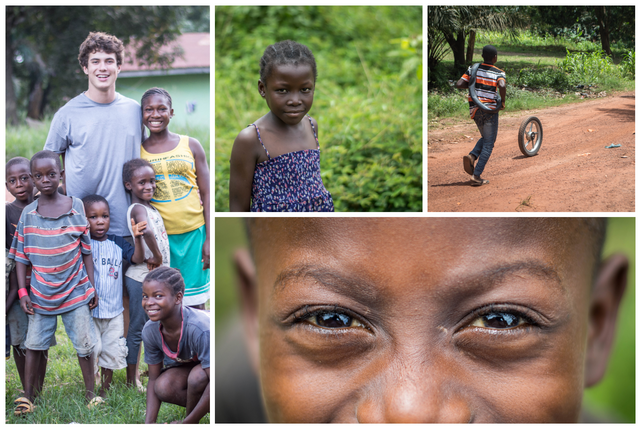
The bunch of kids who stuck by our side throughout the weekend. DJ, smiling with his eyes in the bottom right, was the closest to me.
On our last full day, we spent four hours preparing and cooking traditional Liberian food over the coal-pot. Everything from scratch. A standing mortar and pestle to mash the staple peppay (n. – small, hot peppers). A few whole fish tossed in the stew. And Fufu – fermented Cassava starch that forms a gooey dough to be swallowed in whole. After the time-seasoned meal, we settled back to Maryam’s and slept our last sweat-drenched night in Sinyea.
Top: Cooking around the coal pot; the girl in the white dress mashing peppay, Maryam grinding a seasoning nut, the inescapable oil in the plastic water bottle. Bottom: Me, Steph, and Jon in the background, Agricorps volunteer Sayvanna and LR-6 Maryam in the foreground at a local stream where children were bathing.
Loud music ushered our return to Doe Palace where the host family adoption ceremony took place. I eagerly watched other trainees dance away with their families – then heard my name called. I met my mother from another motherland – Ma Anna Dennis. My sister Patience was also in the crowd.
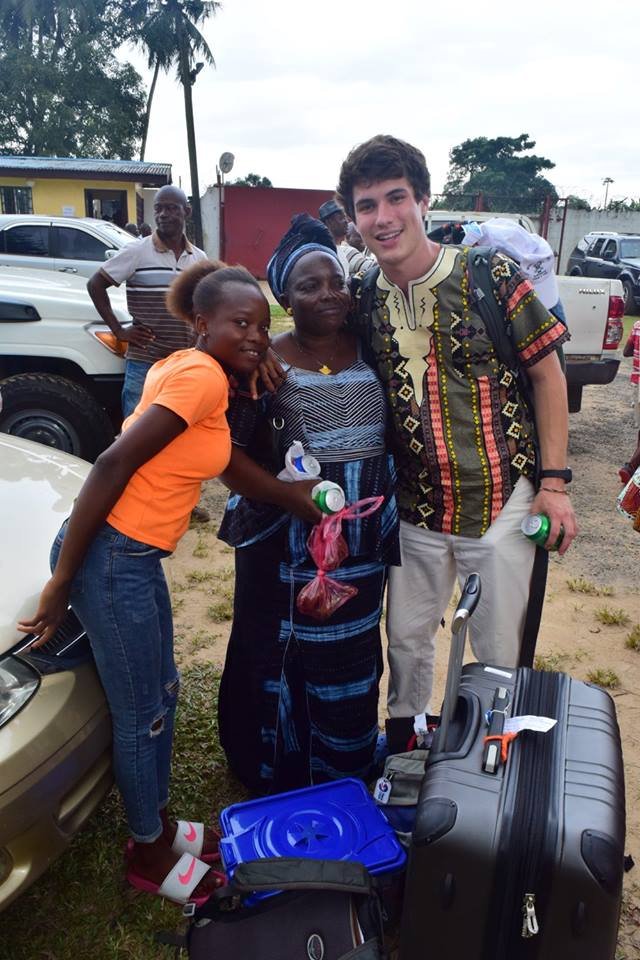
Ma looking sassy after the adoption ceremony and Patience, bluffing
(v. – posing, generally in a tough manner).
Ma is a humorous lady – a middle school English teacher who has hosted two prior PC trainees and birthed a mere four children. She is healthy (n. – well-fed, a sign of stability and wealth), and keeps the house clean and in order. Nine of us live under the tin-roof including grandma and some four-year-olds, but only one is ma’s direct child. Whenever elders want something they simply call the name of a youngin followed by the desired item or task. A response from around the corner, often just a grunt, acknowledges the request.
This hierarchy of generation permeates throughout Liberian society and establishes a culture dependent on respect.
My house has a large overhang out front where grandma stays all day and sells bags of coal for 10 LD (n. – Liberian Dollars, currently 1 USD=155 LD). We have a blonde mid-sized dog named Revenge. Dog’s here have no distinguishable breeds but are rather different colored mutts, and the concept of pets is quite different to non-existent. Our plot of land hosts grass, two gardens, and four fruit trees including plums (n. – mango) and grapefruits.
My weekday schedule is quite consistent;
- Wake up around sunrise, fall back asleep
- Roll out of bed 20 minutes later
- Eat bread, peanut butter, and tea
- Walk 30 minutes to the training center along the coaltar
- Engage in lessons and technical teacher training from 8am-5pm
- Reach home before dark
- Eat, Sleep, Sweat, Repeat
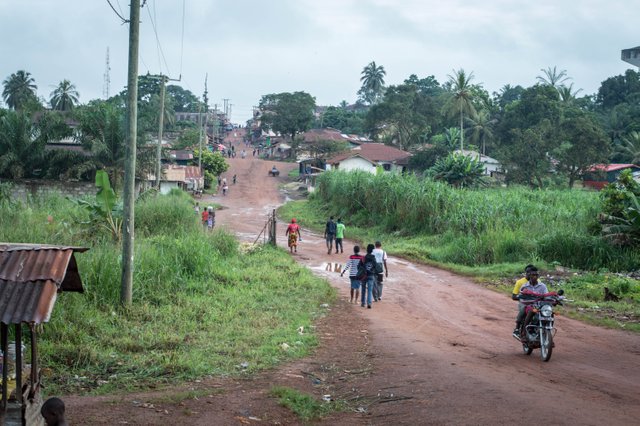
New 14 Road on a dry day- the first leg of my walk to Doe Palace. Powerlines exist in Kakata, but the infrastructure to run them does not.
On the weekends my hours are less structured. I hand-wash my clothes with buckets and a washboard, fetch drinking water (we collect rainwater for all other purposes), sweep my room, and walk through the markets to familiarize myself and try strange bitter foods that I can’t pronounce. A couple weekends back I’m pretty sure I ate dried clay, an apparent health booster for a pregnant woman. On Saturday afternoon’s, fellow volunteer Katie and I lead a girls club for ages 12-19 at St. Augustine’s Episcopal School. Many girls are quieted in the classroom or all together cannot attend due to chores back home. We aim to empower these girls through self-confidence building and leadership skills – encouraging them to stick out education and advocate for themselves. The presence of these clubs run by PC Liberia began after Michelle Obama visited our training center to promote her Let Girls Learn initiative in 2016 (see We Will Rise documentary on her trip to Morocco and Liberia).
This past weekend the 45 of us volunteers arranged a Malaria carnival to weave prevention, recognition, and treatment tips into active games like my group’s Mosquito ball toss. The average Liberian gets sick with the parasite several times each year but fatalities are far more frequent in children under five and pregnant women. Every two minutes a child dies from Malaria in sub-Saharan Africa despite many accessible forms of prevention. This statistic read every 30 seconds back in the early 2000s – the 4-fold reduction in death serves as motivation to keep driving on despite nonchalant attitudes surrounding the illness. I’ll talk more about the pandemic in a later post – there is plenty to say.
More on this later…
In the mean time I’ll list some of my impressions of Liberia, its people, and culture.
Being “white man”. As I walk around Kakata I am called white man more times than I can count, mostly by young children. More surprisingly I am called “China man” at almost the same rate – I am told this is because of my long-ish, dark-ish hair. I grew less likely to respond to these shouts from across the road, but now am comfortable turning around and waving to the crouching kids or correcting them by presenting that I do, in fact, have a name. In Liberia, the adage “don’t judge a book by its cover” doesn’t apply for things like nicknames – but in some ways, it does for introductions. People ask me how my health is, how my family is doing, or what my favorite food has been – a contrast from the American “What is your job and where did you get your degree?”
This leads to another observation – communalism versus individualism. Here your family, neighbors, and friends define you. You are always someone’s son, brother, or cousin. Even people with no familial relations are “brother” or “old ma”. Neighbor’s keep an eye peeled and will warn each other when trouble is brewing in the area – often walking into the house unannounced. Despite this allegiance to those closest to you, there still exists a strong patriotic sentiment for the star and stripes of Liberia. Alternatively, Individualism is the idea that each of us is self-governing; an entity of our own. You are what you make of yourself and self-reliance is an ideal. Conformity is foolish and challenging norms is progressive. It is what you do rather than who you are. I personally find myself falling in the individualistic realm – but I am attracted to many aspects of the communalistic pole I see here (and the one my friends/neighbors and I created with Shantytown during the final month of college).
On an unrelated note, we are experiencing rapid inflation in Liberia due partially to the falling prices of Iron ore and rubber, the primary commodities exported from the country. The exchange rate was 1USD = 142LD when we arrived and has steadily risen to 1USD = 155LD at most money booths, and is recorded nationally at a hasty 21% this past month. There is considerable variation locally, as competition with the large number of unregulated exchange booths in cities like Kakata drives up the rate. In the bush (n. – rural communities that subsist on farming and where most volunteers are stationed) this rate will be lower. Price stickiness has maintained the price of goods under 10LD – as 5LD bills are the smallest denominator – but more expensive items such as clothing or meat products are adjusting promptly.
Please leave comments or reach out to me via Facebook, email, or the trusty old trans-Atlantic Pigeon.
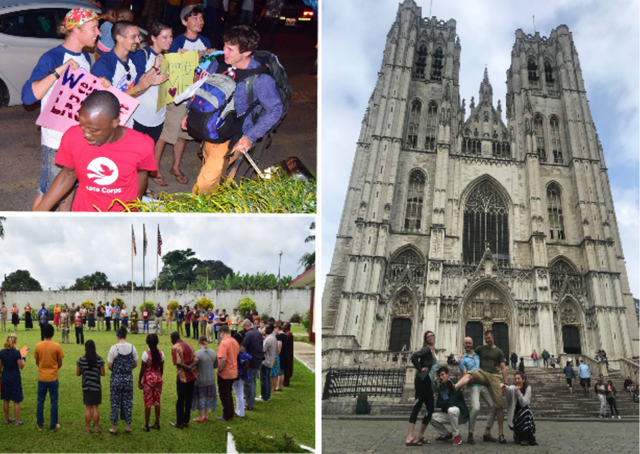
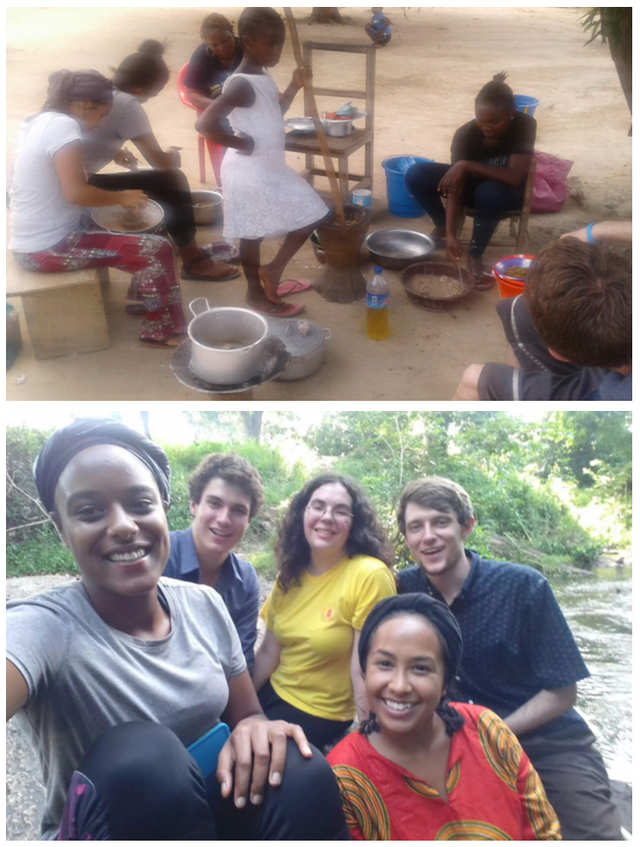
When they say "white man", of course it is not ment in a racist way, but that's how they (probably) distinguish you from everybody else. But being called "China man" is kinda funny. I have enjoyed reading this update a lot, @jhimmel Looking forward to more stories coming soon!
I agree it is not meant in a negative way - simply a distinction of color based on familiarity. I am never offended by it! It's quite funny, actually.
Great update, @jhimmel. I like the way you are able to combine the writing about your everyday routine, your work there, life of the people in Liberia, but also some recent economic developments in the country. Good work, "China man"!
Glad to hear it! China man is happy xD
Fascinating to hear about the recent inflation! Keep us up to date, as there's not much insider perspective on Liberia's recent inflation online. It appears that Liberia has had high inflation for a while, but the recent inflation does seem higher than usual.
Getting to experience hyperinflation would be a very valuable experience! I've been closely following the crisis in Venezuela (check out the two Let's Talk Bitcoin segments in my post). Liberia is still far away from Venezuela's level of hyperinflation, but there are commonalities, like that both sound like natural resource economies in terms of exports.
A small group of Venezuelans is combating the financial repression of inflation, caused by bad governance, by using cryptocurrency. While cryptocurrency prices are extremely volatile by dollar standards, their volatility is nothing compared to the bolívar fuerte (which is volatile in only the wrong direction).
Indeed, Liberia's inflation has been high for quite some time. It is interesting to see the cited articles number for unemployment and recognition of uncertainty. Estimates in-country from relief workers and Liberians is around 75% unemployment. May the bolívar fuerte wane away here in Liberia!
upvote for me please? https://steemit.com/news/@bible.com/2sysip
You look beloved. CONGRATULATIONS
How kind! Thank you.
Congratulations @jhimmel! You have completed the following achievement on Steemit and have been rewarded with new badge(s) :
Click on the badge to view your Board of Honor.
If you no longer want to receive notifications, reply to this comment with the word
STOPTo support your work, I also upvoted your post!
Do not miss the last post from @steemitboard:
SteemitBoard World Cup Contest - Brazil vs Belgium
Participate in the SteemitBoard World Cup Contest!
Collect World Cup badges and win free SBD
Support the Gold Sponsors of the contest: @good-karma and @lukestokes
Congratulations @jhimmel! You have completed the following achievement on Steemit and have been rewarded with new badge(s) :
Click on the badge to view your Board of Honor.
If you no longer want to receive notifications, reply to this comment with the word
STOPDo not miss the last post from @steemitboard:
SteemitBoard World Cup Contest - Semi Finals - Day 1
Participate in the SteemitBoard World Cup Contest!
Collect World Cup badges and win free SBD
Support the Gold Sponsors of the contest: @good-karma and @lukestokes